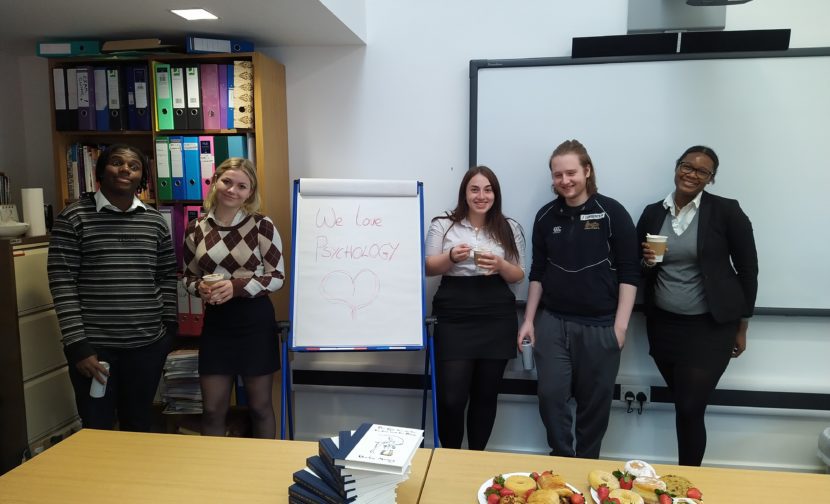Psychology is the scientific study of mind and behaviour. Studying Psychology at Gresham’s can have a positive impact on pupils as they gain greater insight into their own behaviour, thoughts, feelings and attitudes. They are learning not just about a fascinating subject but also about themselves.
Psychology is the study of human behaviour, so if a pupil is interested in what makes a person ‘tick’, they are curious about what makes people similar and yet unique, then Psychology is the subject for them. Psychology can lead onto a variety of careers, including training to be a Forensic, Occupational, Sports or Educational Psychologist. It is also highly relevant to those wishing to study medicine or law or who are a budding entrepreneur. Ultimately, Psychology is a versatile subject which fits with a wide variety of subject combinations. Combined with English Literature it allows an understanding of the motivations of a character in a Bronte novel; with Economics it is understanding why consumers will buy a product even though there are cheaper alternatives on the market; with Biology it encourages the exploration of alternative arguments for human behaviour with more emphasis on the role of the environment.
“Studying Psychology is fun because you’re always looking for the same things I think a writer should be looking for, which is the story behind the story.”
CHRIS CLEAVE, BRITISH WRITER AND JOURNALIST
Who is the course suited to?
Both the IB Diploma and AQA A level courses have a strong emphasis on scientific methods, including maths/statistics and it should be noted that most university courses regard Psychology as a science. Thus, we recommend that pupils have achieved at least a Grade 6 in a Science and Mathematics at GCSE level.
The method of assessment does include essay writing and it is expected that pupils will read widely to consolidate classroom teaching, thus, a Level 6 or higher in English would also be recommended.
What is essential is enthusiasm, commitment, curiosity, and a genuine interest in the subject.
What skills will be learnt or developed?
Transferable skills including the ability to analyse and evaluate information; complete academic research using the internet with discretion; communicate effectively and reflect on their own performance.
ALUMNI
Hannah Farndon neé Pike
Policy Advisor for Professional Practice at the British Psychological Society (BPS)
Crossways/Oakeley 1998
Hannah is Policy Advisor for Professional Practice at the British Psychological Society (BPS). She advises the Society’s Practice Board and leads on the development of guidance for psychologists. Some of the key areas of her focus include dementia, children and young people’s mental health and autism.
Hannah studied psychology and completed a Masters in Forensic Psychology at the University of Leicester. Before joining the BPS, Hannah worked as an intelligence analyst for Leicestershire police.
CHARLIE ADAMS
KENWYN/HOWSON’S 2020
“I loved studying Psychology at A level, as it gave a great insight into the human mind and behaviours. I really enjoyed being able to apply the concepts into everyday life, helping understand why people act in different ways and what makes people unique. I particularly enjoyed studying Social Influence, investigating obedience and legitimacy to authority, and Forensic Psychology, looking at criminal profiling. I have taken my interest in Psychology further by studying Sport Psychology as a module on my degree.”
ISABELLA SCHMID
EDINBURGH 2020
Isabella is currently studying Arts and Sciences at UCL. “I really enjoyed the IB Psychology course and the insight it gave me into human behaviour, especially the biological and socio-cultural aspects of the course. Learning about methodology and ethics in psychology has allowed me to develop crucial analytical skills that I have been able to apply to my studies at university in subject areas outside of Psychology and has allowed me to look at research from a range of perspectives. Since completing the IB, my interest in Psychology has continued to grow and I am now studying neuropsychology as part of my degree.”


